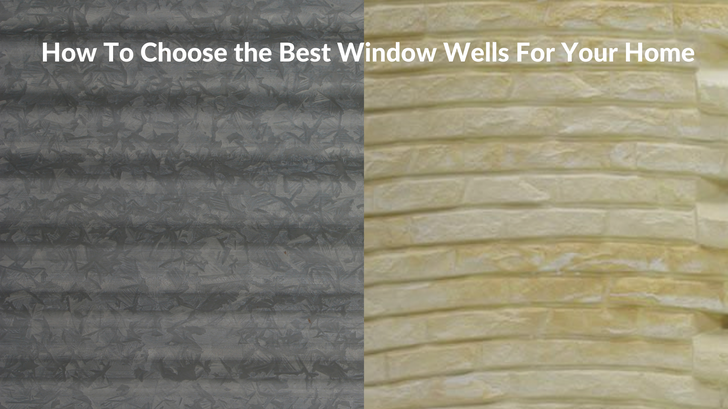Building codes stipulate every house with a basement has a window well or two, but it's up to you to equip them. Here's how to choose the best window wells for your home.
What are the benefits of steel window wells?
Steel window wells can be quite robust and strong, and they're usually lighter than concrete, making them easier to deal with for the DIY installation. While metal window wells might have an industrial appearance, there are several unique and appealing designs available.
Their major flaw is the possibility of corrosion. Despite the protective coating on a galvanized steel well, you're still putting metal against moist dirt for a prolonged period of time.
What are the benefits of plastic window wells?
Because it doesn't rot or corrode, plastic window wells are good for long-term moisture resistance. These window wells are lighter than concrete window wells, making DIY installation easier, but their appearance isn't for everyone.
The strength and UV resistance of most plastic materials is a problem. Replacement of shattered plastic window wells is a fairly common occurrence. As the soil around the window well expands and shrinks, it can apply a lot of pressure on the window well, eventually ruining some fiberglass and plastic window wells.
If you're conducting a DIY job and don't have the tools to move huge slabs of concrete, a plastic or metal window well can be a good option for your home. Both metal and plastic window wells have unique looks and benefits, so it is always best to do research and make an informed purchase.

 Lifetime Warranty On All WWS Covers
Lifetime Warranty On All WWS Covers
 Free Shipping On All Products
Free Shipping On All Products





 (262) 633-3707
(262) 633-3707

 info@windowwellsupply.com
info@windowwellsupply.com
